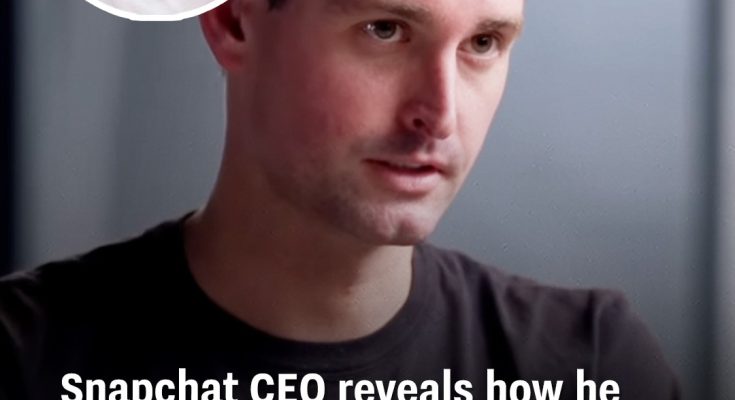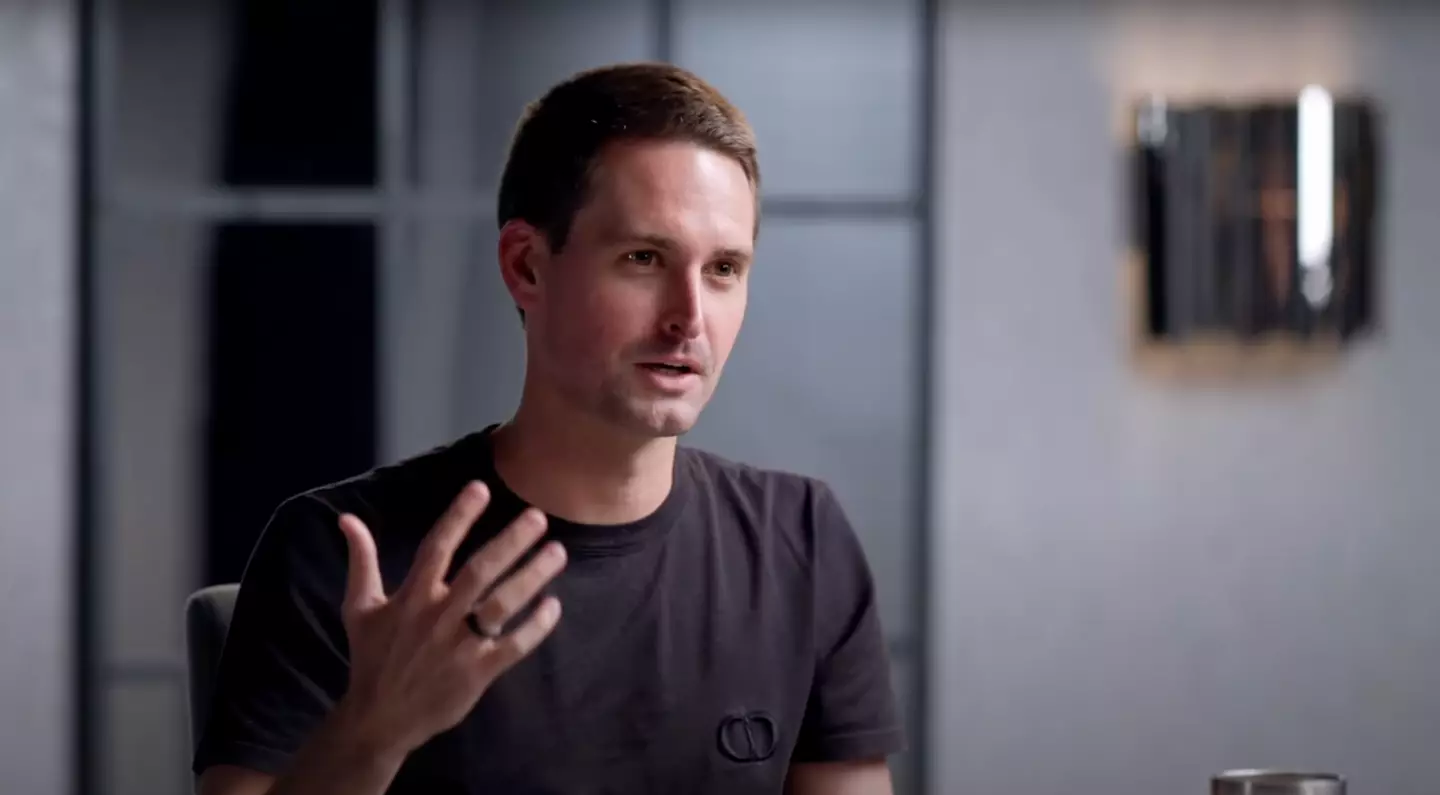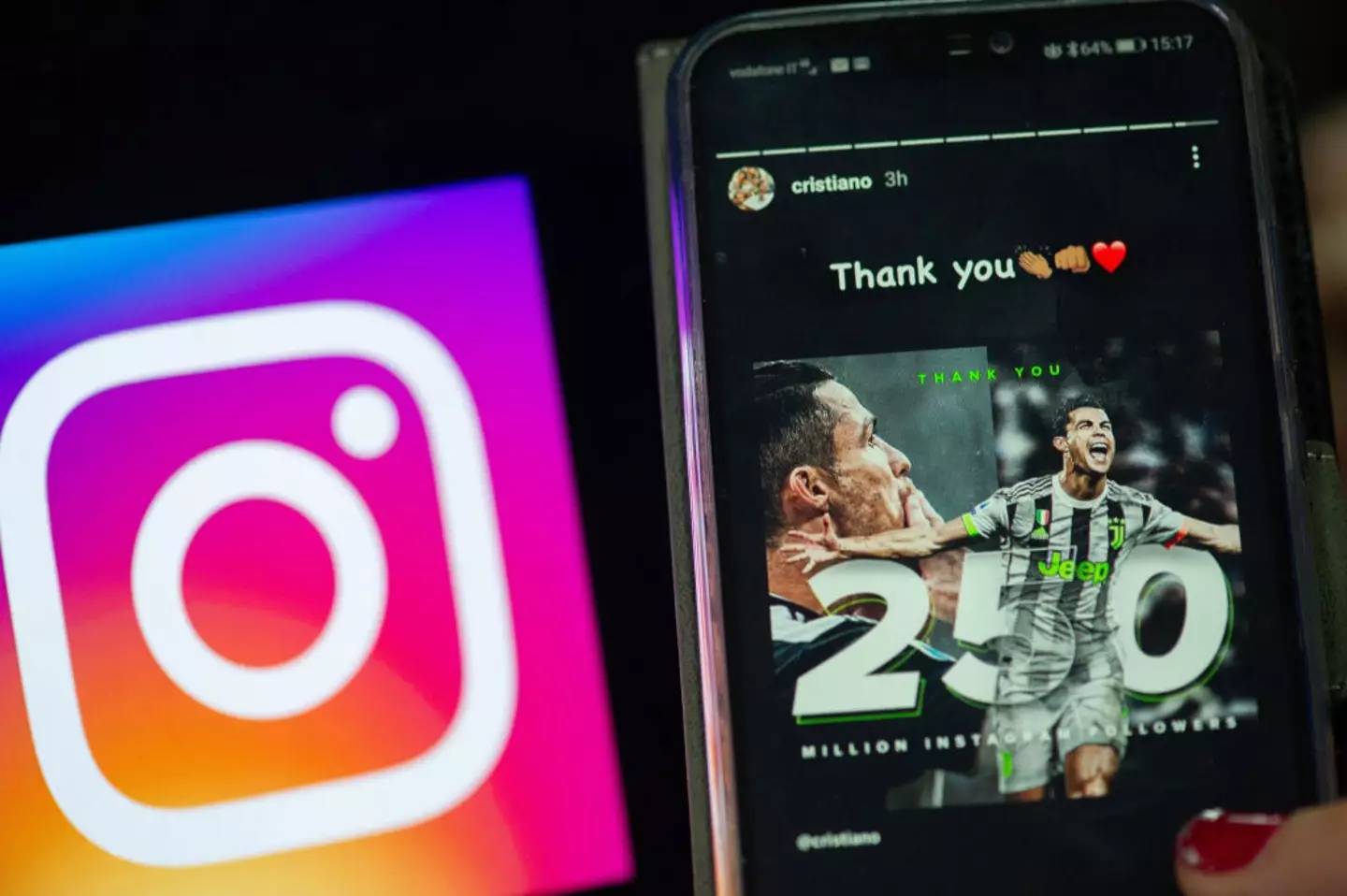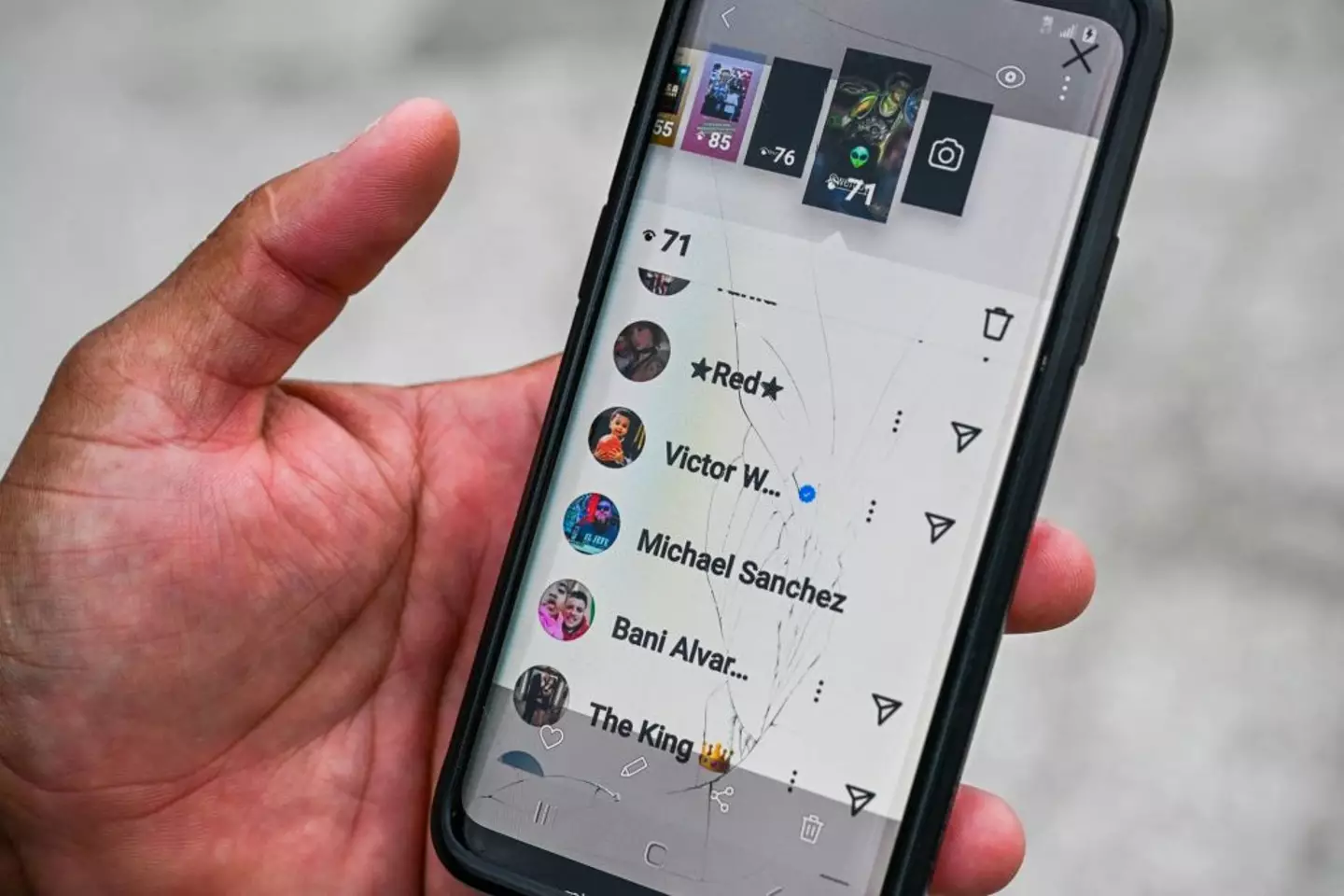Snapchat’s CEO has finally weighed in on how he felt after Instagram copied the iconic ‘Stories’ feature that became so synonymous with his social media platform, offering assessment on whether it was an ‘injustice’.
‘Stories’ is undeniably one of Instagram‘s most recognizable and valuable features for its users, allowing them to reveal brief insights to their followers that disappear forever after 24 hours.
Having been part of the social media platform for nearly a decade now it’s hard to imagine using Instagram without Stories, but it was actually a feature that was copied directly from rival app Snapchat.
Snapchat’s entire ethos was short-lived content that would disappear, and they’d introduced Stories to the app over three years prior to Instagram’s adoption of the feature, and it was one of their most used components.
Now, nearly 9 years after his core feature was ‘stolen’ from him, Snapchat CEO Evan Spiegel has finally revealed how he felt and still feels about Instagram’s actions on The Diary of a CEO podcast.
When asked whether he ever considered getting in contact with Mark Zuckerberg after it was revealed that Instagram would be adopting Stories, Spiegel explained:
“No we didn’t do that, I think one of things that I really admire about Kevin Systrom [Instagram’s founder] is when they copied the Stories feature they stopped pretending that they were doing anything different.
“With things like ‘Poke’ they tried to pass it off as their own creation, ‘oh we’re doing it a little bit differently’, with Stories Kevin Systrom came out and just said ‘hey, we think this is a really great feature, this is a really great product and we’re going to steal it and put it in Instagram and we think you’re going to love it’, and I think the honesty at least was admirable.”
It’s clear that there’s no bad blood felt between the companies then, especially as both remain incredibly successful multi-billion dollar companies.
Spiegel even reveals that he copied features from other social media platforms in the past too, illustrating one idea he nabbed from TikTok creator ByteDance back when they just had news app Toutiao.
“In the very early days I went to visit ByteDance when they only had Toutiao […] but it was backed by AI, by ML [machine learning],” Spiegel reveals.
“When I saw that, that was really inspiring to me and we made a big change to our product. We actually separated out all the creator and publisher content from ‘Stories from Friends’, and we said unlike social media where you’re seeing content based on what your friends like or what your friends comment on, on Snapchat we’re going to do ML-driven recommendations.
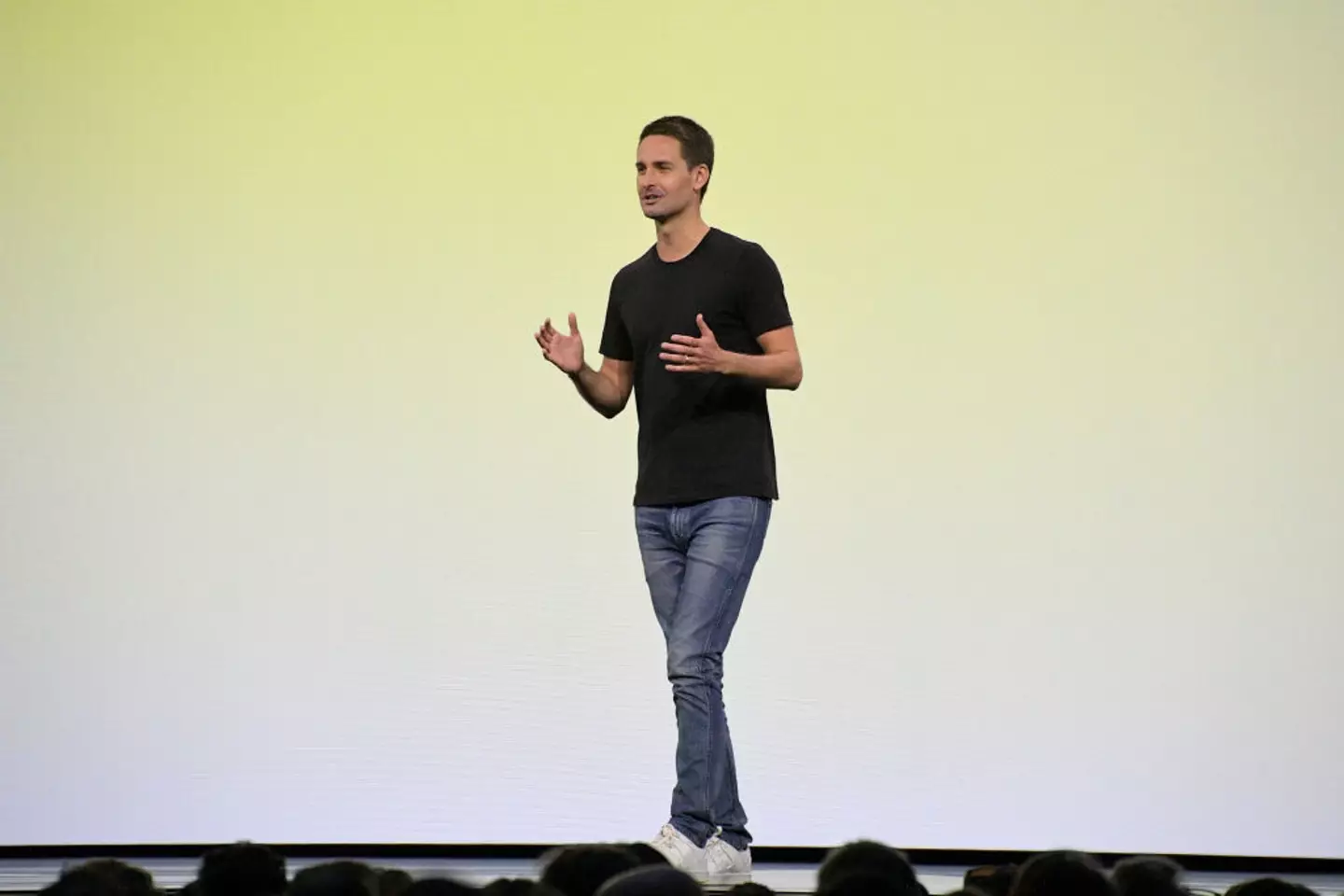
Spiegel’s idea for an ML-based recommendation system only came after seeing ByteDance’s Toutiao implement a similar idea (Charley Gallay/Getty Images for Snap Inc.)
“So you’ll have content from your friends but then you’re going to have this whole other world of content from creators and publishers that’s going to be recommended based on your interests and what you’re passionate about, so I do think drawing inspiration from other companies and other businesses is part of innovating.”
This decision and ‘innovation’ from Snapchat was one of the earliest moments when social media would introduce algorithm-based recommendations to its users, which is by far the dominant mode that we see used in almost every platform today, and much like how Instagram copied stories, Snapchat wouldn’t have had the idea without copying ByteDance.


There is a controversial reason why the Snapchat CEO sets new employees up to fail on their first day on the job.
The social media app’s co-founder and CEO, Evan Spiegel, lifted the lid on his bizarre training tactic for new hires.
People who join Snapchat are put to the test on their first day by being asked to pull together a presentation.
And while that might sound like anyone’s worst nightmare on the first day on the job, there’s apparently a good reason behind it.
Making an appearance on the Diary of a CEO podcast with host Steven Bartlett, Spiegel explained why he likes to put new recruits on the spot.
He said: “When you have no context for what the company is working on, no idea what’s going on, how on earth are you supposed to come up with a great idea? I mean, it’s almost impossible.”
However, he isn’t trying to get usable ideas from the new hires when asking them to put together a proposal, instead it’s about ripping off the bandaid of failure.
The CEO continued: “99% of ideas are not good—but 1% is. We really abide by the concept that the best way to have a good idea is to have lots of ideas.”
Spiegel also went on to explain the three values that he’s looking for in a potential new employee during the hiring process.
He wants his workforce to be kind, smart and creative.
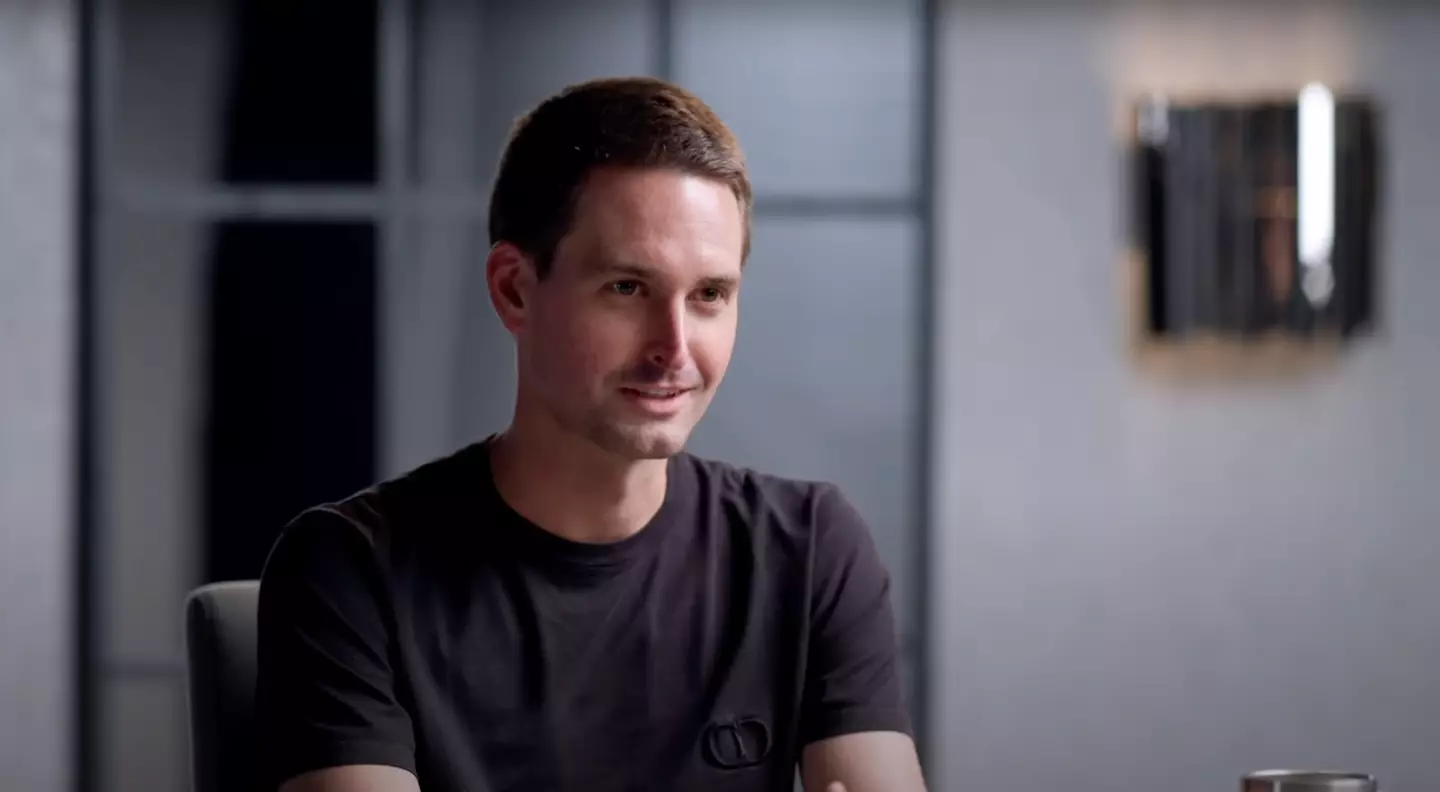
Spiegel continued: “We learned over time that actually, wow, kindness is the essential ingredient if you want to have a creative culture.”
And he believes that when a worker is struggling, it’s even more important to be kind.
He added: “The nice thing to do is maybe just make them feel good about it: ‘oh don’t worry, I’m sure it’ll be okay’.
“The kind thing to do is really help them succeed.”
Many viewers took to the YouTube comment section to share their reactions to the interview.
One inspired user said: “This is good stuff. Kindness fosters creativity. I will remember that.”
Another shared a similar sentiment, adding: “Brilliant I love the way the conversation went about creative ideas and bringing the best out in people. One of the best interviews.”
However, not everyone was convinced, with one person commenting: “Not Evan trying to convince the world that snap chat is different and he isn’t a capitalist billionaire.”


There is a controversial reason why the Snapchat CEO sets new employees up to fail on their first day on the job.
The social media app’s co-founder and CEO, Evan Spiegel, lifted the lid on his bizarre training tactic for new hires.
People who join Snapchat are put to the test on their first day by being asked to pull together a presentation.
And while that might sound like anyone’s worst nightmare on the first day on the job, there’s apparently a good reason behind it.
Making an appearance on the Diary of a CEO podcast with host Steven Bartlett, Spiegel explained why he likes to put new recruits on the spot.
He said: “When you have no context for what the company is working on, no idea what’s going on, how on earth are you supposed to come up with a great idea? I mean, it’s almost impossible.”
However, he isn’t trying to get usable ideas from the new hires when asking them to put together a proposal, instead it’s about ripping off the bandaid of failure.
The CEO continued: “99% of ideas are not good—but 1% is. We really abide by the concept that the best way to have a good idea is to have lots of ideas.”
Spiegel also went on to explain the three values that he’s looking for in a potential new employee during the hiring process.
He wants his workforce to be kind, smart and creative.


Evan Spiegel puts new hires to the test on their first day (YouTube/@TheDiaryOfACEO)
Spiegel continued: “We learned over time that actually, wow, kindness is the essential ingredient if you want to have a creative culture.”
And he believes that when a worker is struggling, it’s even more important to be kind.
He added: “The nice thing to do is maybe just make them feel good about it: ‘oh don’t worry, I’m sure it’ll be okay’.
“The kind thing to do is really help them succeed.”
Many viewers took to the YouTube comment section to share their reactions to the interview.
One inspired user said: “This is good stuff. Kindness fosters creativity. I will remember that.”
Another shared a similar sentiment, adding: “Brilliant I love the way the conversation went about creative ideas and bringing the best out in people. One of the best interviews.”
However, not everyone was convinced, with one person commenting: “Not Evan trying to convince the world that snap chat is different and he isn’t a capitalist billionaire.”
Featured Image Credit: YouTube/@TheDiaryOfACEO

